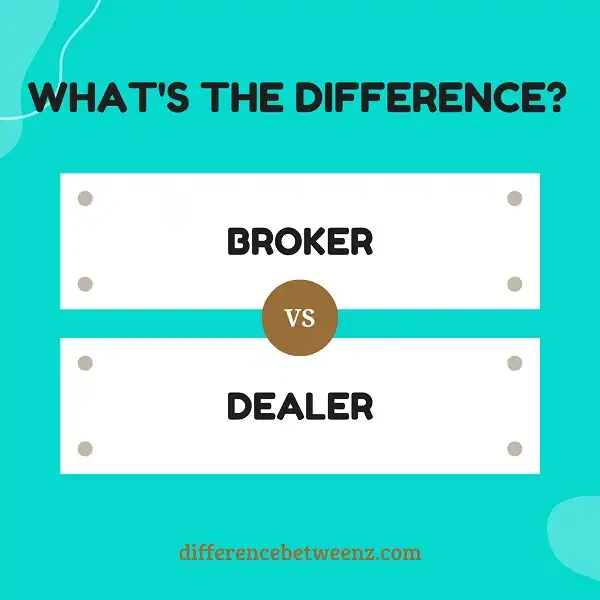What’s the difference between a broker and a dealer? You might think they’re one and the same, but there are distinct differences. Let’s take a closer look at each role and see what activities they perform.
Both brokers and dealers connect buyers and sellers of securities, but there is a big distinction between the two. A broker is an intermediary who facilitates the trade while a dealer is engaged in buying and selling securities for their own account.
What is Broker?
Broker is an occupation that has been around for centuries, dating back to the days of early trade and commerce. In its simplest form, a broker is someone who brings buyers and sellers together in order to facilitate a transaction. Brokers can work in a variety of industries, from real estate to insurance, but their basic function remains the same: to act as a middleman between buyers and sellers.
While the role of the broker has changed over time, it remains an important part of the business world, making it possible for buyers and sellers to connect and conduct business without ever meeting in person. With the advent of the internet, brokers now have a new tool at their disposal, one that allows them to reach a global audience of potential buyers and sellers. Whether working in traditional industries or harnessing the power of the internet, brokers play an essential role in today’s economy.
What is a Dealer?
A dealer is a person who buys and sells securities, commodities, or other financial instruments. Dealer activities are typically conducted through a broker-dealer firm. Dealer firms may be either full-service firms that offer a wide range of services to their clients, or they may be “boutique” firms that specialize in only one type of service. Dealer firms are also classified as either proprietary firms or third-party firms. Proprietary firms conduct transactions for their own account, while third-party firms conduct transactions on behalf of their clients. Dealers play an important role in providing liquidity to the markets and helping to match buyers and sellers of financial instruments.
Difference between Broker and Dealer
Brokers are in the business of buying and selling securities on behalf of their clients. Dealers, on the other hand, buy and sell securities for their own accounts. Brokers earn their commissions by charging a percentage of the total value of the securities they buy or sell for their clients. Dealers, on the other hand, earn their profits by buying securities at a lower price and then selling them at a higher price.
In addition, dealers also earn money from the interest on the securities they hold in inventory. Because dealers are more likely to take risks with their own money, they must be registered with the Securities and Exchange Commission. Brokers, on the other hand, are not required to register with the SEC.
Conclusion
The main difference between brokers and dealers is that dealers are authorized to buy and sell securities on behalf of their clients, whereas brokers are not. This means that dealers have a fiduciary responsibility to their clients, while brokers do not. In addition, dealers may act as principals in transactions with their clients, while brokers must always act as agents. Finally, the type of products that dealers and brokers can offer also differs; dealers typically deal in stocks and bonds, while brokers can offer a wider range of products, including options and futures contracts.


